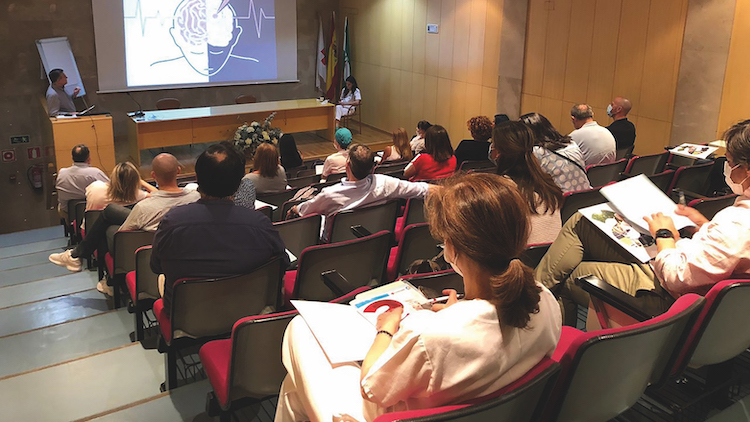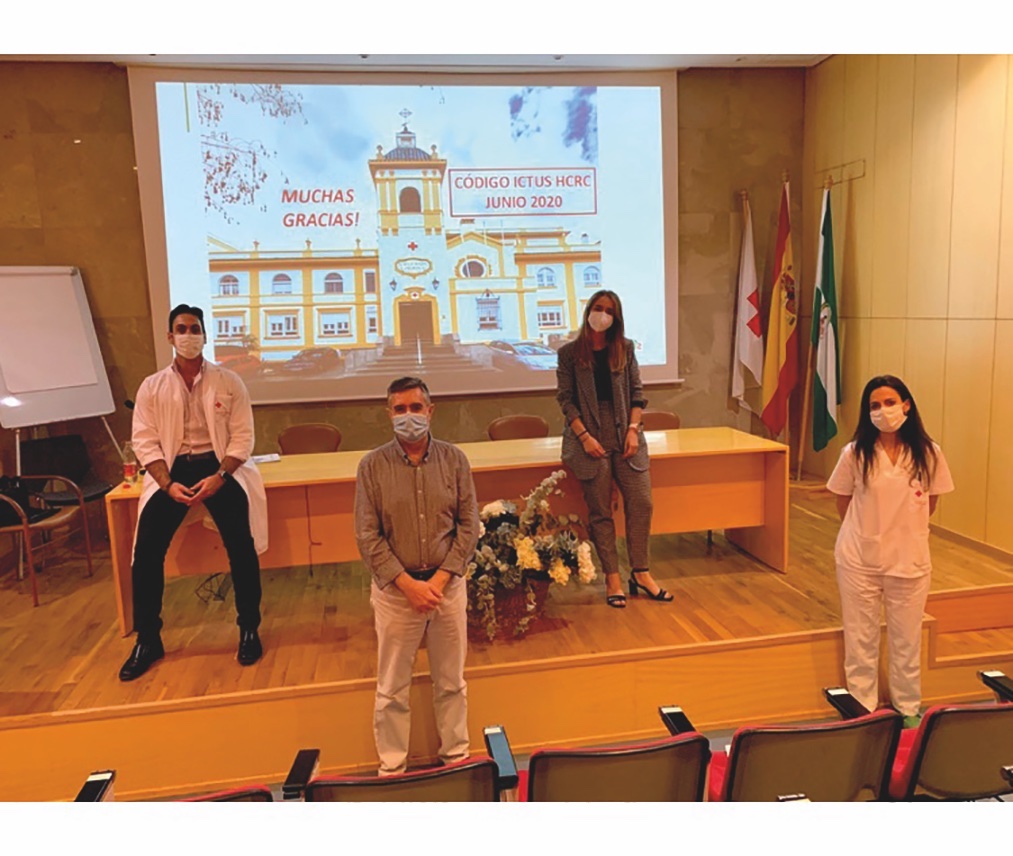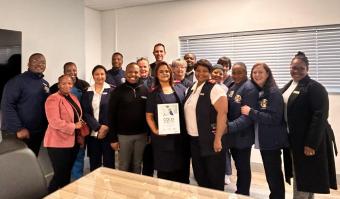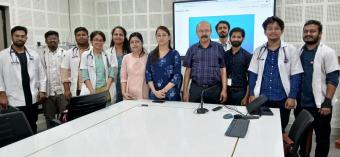When a former colleague suffered a stroke and did not receive treatment in time, it was a turning point for Hospital Cruz Roja in Cordoba. Their journey towards joining the stroke network in their region started with a call to Angels consultant Alicia Arjona ...

Working in a hospital means you see patients with all kinds of symptoms and ailments every day. The pandemic brought even more patients, many whom couldn't be saved. But what if a patient comes to the hospital with a peculiar type of stroke? And what if your hospital is not equipped to diagnose and effectively deal with such patients?
Even worse, what if this patient is someone you know personally, like a colleague for example? Would this experience break your spirit, or motivate you to make a change? In the case of Hospital Cruz Roja in Cordoba (HCRC) this experience has led to a new beginning.
A recently retired doctor from the hospital came into the emergency room reporting that he hadn't been feeling well for several hours. The doctors present mistook the symptoms for vertigo, a common stroke mimic, and as related to his previous atrial fibrillation history. He remained in the hospital to be monitored and cared for. When he later fell while trying to walk, they decided to take him to the CT room and discovered a cerebral infarction. By then, it was unfortunately too late to do anything against his stroke.
The stroke code in Cordoba and in all of Andalucia specifies that strokes are treated in the public hospitals that are part of the stroke network. Cordoba has one of these hospitals – a comprehensive centre – and if any of the other hospitals in the city receive a stroke patient, they send the CT scans to this centre for further instructions and transfer.
But Cordoba is a big city with a significant population to only have one stroke centre. That is why, despite being in the middle of a pandemic, the Intensive Care Unit lead by Dr Noelia Munoz and the Neurology Department lead by Dr Roberto Valverde of the HCRC decided to start treating stroke patients and implement a formal stroke code.
They invited the region's Angels consultant, Alicia Arjona, to brainstorm the solutions and next steps to implement in their protocols. Then they gathered all the hospital staff together, independent of their role, to announce the goal – a new group of patients would start arriving, and everyone should have the essential information for them to recognize a stroke and to know how to proceed.
 A multidisciplinary working group was created, called the Brain Team. "They truly understood the power of teamwork in stroke care," Alicia Arjona says. "They included everyone in the hospital in the development of the stroke pathway and trainings. And the team worked to make all understand they are an essential part of this journey."
A multidisciplinary working group was created, called the Brain Team. "They truly understood the power of teamwork in stroke care," Alicia Arjona says. "They included everyone in the hospital in the development of the stroke pathway and trainings. And the team worked to make all understand they are an essential part of this journey."
The team developed a spirit of improvement and collaboration. Dr Munoz and Dr Valverde carefully organized trainings that could involve everyone without breaking any hygiene and social distancing rules.
Over several days in May, they taught staff the proper triage, the hyper-acute phase, the NIHSS neurological assessment, and the best practices in post-acute care. They chose the challenging goal of a 25-minute door-to-needle time; Helsinki posters were put in place to record data, and the use of checklists was established as part of the protocol.
Working with Angels, they also ran simulations consisting of two different scenarios – a Covid-19-negative stroke patient, involving EMS, and a Covid-19-suspected stroke patient who arrived at hospital on his own.
By May this year Hospital Cruz Roja had already successfully treated their first 10 acute stroke patients. Treatment takes place in the CT room, with the Stroke Bag at the ready, and the entire stroke team has regularly scheduled quality monitoring meetings to identify barriers and continue improving.
Stroke patients are still hospitalized in the ICU as the number of Covid-19 patients hasn't allowed them to allocate beds to a specialized stroke unit. However, this remains their goal, and one they are ready to implement as soon as the pandemic allows.
Not only have links been strengthened between the hospital's porters, ED physicians, ICU physicians, EMS, nurses, neurologists, patient-data administrators and radiologists in the interests of better outcomes for stroke patients; the hospital has also adopted the Angels ideology and understand the importance of community. By sharing their story they want to give others the confidence to treat stroke patients, and encourage them to follow in their steps.
Dr Noelia Munoz says: "Angels helped with an implementation of a cultural change until good becomes better and better becomes the best. A chain is as strong as its weakest link... a chain of management and treatment of stroke patients in the hospital.
"We strongly believe in the chain of survival: It refers to a series of actions that, properly executed, reduce the mortality associated with these time sensitive interventions performed by people. It must be maximized and optimized so also the quality of life is included in this survival.
"We thank the patients for the daily life lessons. It was a stroke patient who gave us the opportunity to change our lives, more than us saving a stroke patient. We are now involved in this marvellous project because of him [the patient]".



